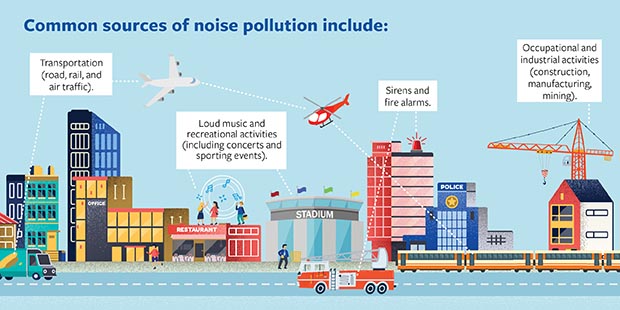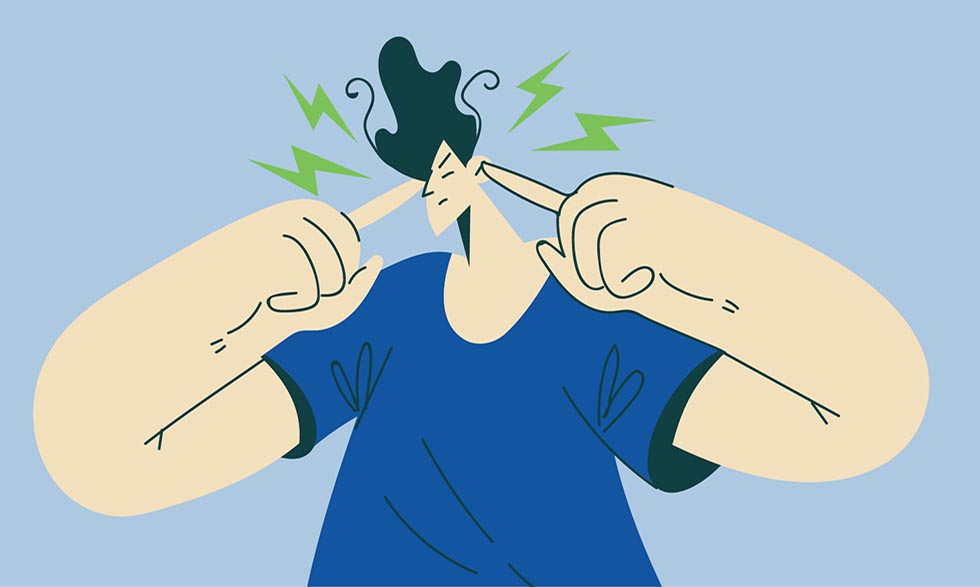Noise pollution
Every day you are surrounded by sounds from your environment, including the TV, radio, appliances, and traffic. Noise pollution is unwanted or bothersome sound. In some cases, noise pollution can be loud enough to damage the ear and contribute to hearing loss. Noise pollution can also disrupt sleep and contribute to chronic stress. These issues have been associated with health conditions like high blood pressure, heart disease, and diabetes.
Sound is measured in units called decibels (dB). Sounds at or below 70 dB are usually safe and won’t harm your hearing. However, sounds can be harmful if they are too loud for even a short time. Occasional loud noises are okay, but it’s important to give your ears time to recover in quiet.
Average sound levels (in dB)
- A typical conversation: 65–80
- Washing machine or dishwasher: 45–65
- Gas-powered lawn mowers and leaf blowers: 80–100
- Motorcycle: 80–110
- Sirens: 110–129
- Fireworks: 140–160
More than 30 million Americans are regularly exposed to hazardous levels of sound.

Many kinds of human activity can cause noise pollution. Click to enlarge
Ways to protect your hearing
To reduce your risk of hearing damage from noise:
- Move away from the noise
- Wear hearing protectors (such as earplugs or earmuffs)
- Lower the volume (including when wearing headphones)
Check out It’s a Noisy Planet from the National Institute on Deafness and Other Communication Disorders to learn more about noise-induced hearing loss.
Light pollution
Artificial light from electronic devices, homes, streetlights, vehicles, and buildings creates light pollution. This can cause problems for people and animals.
Exposure to artificial light at night affects your body’s melatonin production. Melatonin is a hormone that signals it’s time to go to sleep. Poor sleep can affect your focus, judgment, memory, and other bodily processes.
Bright electric lights can also affect birds that migrate at night. These birds can become confused and may fly into buildings, communication towers, and other structures. The U.S. Fish and Wildlife Service estimates that nearly 7 million birds die each year from colliding with communication towers at night.
Ways to reduce artificial light at night
- Keep your room dark for at least 9-10 hours a night.
- Install room-darkening shades on your windows.
- Turn off the lights and electronic devices in the bedroom when you are sleeping. Avoid watching television, using your phone, or working on the computer right before you shut your eyes.
- If you get up in middle of the night to use the bathroom, for example, use a dim red nightlight instead of the regular room light. Red light suppresses melatonin production less than other wavelengths.
- Do not take melatonin tablets unless directed by your health care provider. Melatonin can disrupt your circadian rhythm further.






